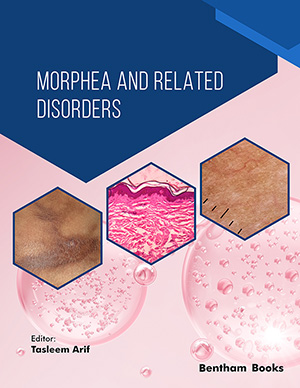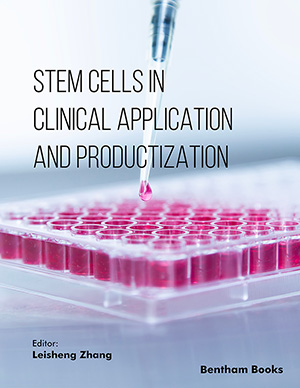Abstract
Background: SARS-CoV-2 infection has spread throughout the globe and has become a terrible epidemic. Researchers all around the globe are working to understand the characteristics of coronavirus and are trying to find antiviral compounds as an alternative to vaccines.
Objective: The present study has been conceptualized to screen the various metabolites of traditional therapeutic plants that can have crucial antiviral activity against COVID-19.
Methods: Medicinal plants are rich sources of therapeutic agents of human origin. In this study, active metabolites from plants such as O. sanctum, C. longa, A. indica, Z. officinale, A. paniculata, G. glabra, A. sativum, P. guajava, V. negundo and S. aromaticum have been studied. This study aims to control COVID-19, either by interfering with the Cysteine-like protease (3CLpro) component of COVID-19 or by blocking viral entry via the human angiotensinconverting enzyme 2 (ACE 2) receptor. The molecular docking of forty plant metabolites was studied with the 3Clpro component and ACE 2 receptors. In addition to this, the binding capacity of these two targets was also compared with hydroxychloroquine used for its treatment.
Results: The results reveal that Glycyrrhizin binds to 3CLpro in a highly stable manner with the lowest binding energy. Glabridin, beta-sitosterol, beta-Caryophyllene, alpha-Curcumene, and Apigenin, among others, have shown effective interactions with both ACE 2 and 3CLpro. The study reveals the ability of more than 20 plant-based compounds against the COVID-19 infection cycle, which are more effective than hydroxychloroquine.
Conclusion: Medicinal plant-based therapeutic compounds might provide quickly, sensitive, precise, and cost-effective alternative therapies. To reduce adverse effects, many pharmacological characteristics of medicinal plant agents should be adjusted.
Keywords: COVID-19, molecular docking, medicinal plants, antiviral, alternate therapy, severe acute respiratory syndromes.
[http://dx.doi.org/10.4103/ijp.IJP_115_20] [PMID: 32201449]
[http://dx.doi.org/10.26355/eurrev_202004_21036] [PMID: 32373991]
[http://dx.doi.org/10.1056/NEJMp2005630] [PMID: 32227757]
[http://dx.doi.org/10.1016/j.ijantimicag.2020.106243] [PMID: 33408014]
[http://dx.doi.org/10.2147/IJGM.S332458] [PMID: 34849001]
[http://dx.doi.org/10.1177/2040206620961712] [PMID: 32972196]
[http://dx.doi.org/10.2217/fvl-2021-0119] [PMID: 34887938]
[http://dx.doi.org/10.1002/rmv.2295] [PMID: 34558756]
[http://dx.doi.org/10.1080/14786410802393548] [PMID: 20140802]
[http://dx.doi.org/10.4103/phrev.phrev_2_18]
[http://dx.doi.org/10.1186/s12906-021-03402-2]
[http://dx.doi.org/10.1016/j.jep.2020.113541] [PMID: 33152438]
[http://dx.doi.org/10.1007/s00253-018-9488-1] [PMID: 30413849]
[http://dx.doi.org/10.1007/s13337-020-00584-0] [PMID: 32420412]
[http://dx.doi.org/10.1002/jmv.25993] [PMID: 32379348]
[http://dx.doi.org/10.1179/2047773215Y.0000000005] [PMID: 25706099]
[http://dx.doi.org/10.1179/2047773212Y.0000000004] [PMID: 22595270]
[http://dx.doi.org/10.1016/j.apsb.2020.02.008] [PMID: 32292689]
[http://dx.doi.org/10.1080/20477724.2020.1765650] [PMID: 32450774]
[http://dx.doi.org/10.1111/j.1742-4658.2005.04756.x] [PMID: 16008552]
[http://dx.doi.org/10.1016/j.ijantimicag.2020.105995] [PMID: 32335281]
[http://dx.doi.org/10.1021/jm0493008] [PMID: 15715493]
[http://dx.doi.org/10.1016/S0140-6736(03)13615-X] [PMID: 12814717]
[http://dx.doi.org/10.20944/preprints202001.0358.v3]
[http://dx.doi.org/10.21203/rs.3.rs-26480/v1]
[http://dx.doi.org/10.4103/0973-7847.65323] [PMID: 22228948]
[http://dx.doi.org/10.3390/molecules19079535] [PMID: 25000465]
[http://dx.doi.org/10.1155/2016/7382506]
[http://dx.doi.org/10.1155/2015/142979] [PMID: 25838819]
[http://dx.doi.org/10.1007/978-3-319-27027-2_21]
[http://dx.doi.org/10.1055/s-2006-961504] [PMID: 1470664]
[http://dx.doi.org/10.1016/j.antiviral.2012.02.013] [PMID: 22453134]
[http://dx.doi.org/10.3390/biom10020202] [PMID: 32019140]






























